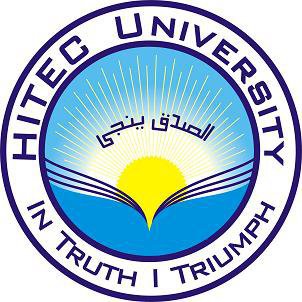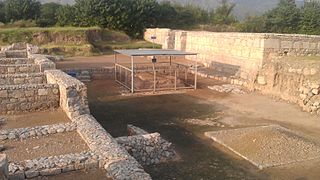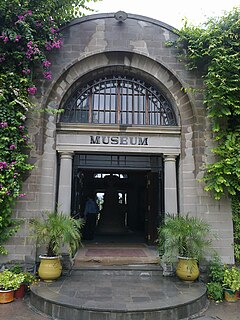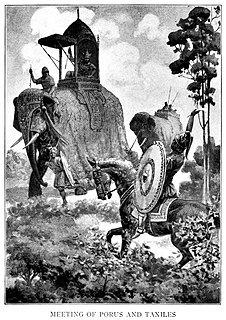 W
WTaxila Tehsil, headquartered at Taxila, is one of the eight Tehsils (sub-divisions) of Rawalpindi District in the Punjab province of Pakistan. According to the 2017 census, the tehsil has a population of 677,951.
 W
WThe Bhir Mound is an archaeological site in Taxila in the Punjab province of Pakistan. It contains some of the oldest ruins of Ancient Taxila, dated to sometime around the period 800-525 BCE as its earliest layers bear "grooved" Red Burnished Ware, Bhir Mound, along with several other nearby excavations, form part of the Ruins of Taxila – inscribed as a UNESCO World Heritage Site in 1980.
 W
WChanakya was an ancient Indian teacher, philosopher, economist, jurist and royal advisor. He is traditionally identified as Kauṭilya or Vishnugupta, who authored the ancient Indian political treatise, the Arthashastra, a text dated to roughly between the 3rd century BCE and the 3rd century CE. As such, he is considered the pioneer of the field of political science and economics in India, and his work is thought of as an important precursor to classical economics. His works were lost near the end of the Gupta Empire in the 6th century CE and not rediscovered until the early 20th century.
 W
WHathial is an ancient archaeological site next to Bhir Mound, just south of Sirkap, in the area of Taxila in Pakistan. It is quite a large site, in which red burnished ware and various materials were discovered similar to those of Charsadda. This suggest that the establishment of the Hathial site may go back as far as 1000 BCE. The adjoining settlement of Bhir Mound was only created later, probably around 500 BCE.
 W
WHITEC University is a private university located in Taxila Cantonment, Punjab, Pakistan.
 W
WJandial near the city of Taxila in Pakistan is the site of an ancient temple well known for its Ionic columns. The temple is located 630 meters north of the northern gate of Sirkap. The Temple was excavated in 1912–1913 by the Archaeological Survey of India under John Marshall. It has been called the most Hellenic structure yet found on Pakistani soil.
 W
WJinnan Wali Dheri is an archaeological site near Taxila, Pakistan. It is the remains of a Buddhist monastic complex dating to the 5th century AD, part of the remains of the Gandhara civilization. It is one of the best-preserved Buddhist monastic complexes in the Taxila valley. The complex includes a main stupa, votive stupas, an enclosure around the main stupa provided with chapels facing towards main stupa, two platforms of rather late period constructed in front of the chapels situated on the both corners of the eastern wall, an upper court votive stupa and a monastery/sangharama on the eastern side of the stupa.
 W
WKunala Stupa is a Buddhist stupa and monastery complex to the south-east of Taxila, on a hill about 200 meters just south of Sirkap,Punjab, Pakistan, thought to date to the 2nd century CE. It is located on a hill overlooking the ancient Indo-Greek city of Sirkap.
 W
WMohra Muradu is the place of an ancient Buddhist stupa and monastery near the ruins of Taxila, in the Punjab province of Pakistan. The ancient monastery is located in a valley and offers a beautiful view of the surrounding mountains. The monks could meditate in all stillness at this place but were near enough to the city of Sirsukh to go for begging as it is only around 1.5 km away.
 W
WSirkap is the name of an archaeological site on the bank opposite to the city of Taxila, Punjab, Pakistan.
 W
WSirsukh is an ancient city that forms part of the ruins at Taxila, near the modern day city of Taxila, Punjab, Pakistan.
 W
WTaxila in Sanskrit is a significant archaeological site in the modern city of the same name in Punjab, Pakistan. It lies about 32 km (20 mi) north-west of Islamabad and Rawalpindi, just off the famous Grand Trunk Road.
 W
WTaxila Museum is located at Taxila, Punjab, Pakistan. The museum is home to a significant and comprehensive collection of Gandharan art dating from the 1st to the 7th centuries CE. Most objects in the collection were excavated from the ruins of ancient Taxila.
 W
WTaxila, is a city in Rawalpindi District of the Punjab, Pakistan. Taxila is situated about 32 km (20 mi) north-west of Islamabad and Rawalpindi, along the historic Grand Trunk Road, near the important Sikh pilgrimage centre of Hasan Abdal, and the Mughal-era Wah Gardens.
 W
WTaxiles was the Greek chroniclers' name for the prince who reigned over the tract between the Indus and the Jhelum (Hydaspes) Rivers in the Punjab region of the Indian subcontinent at the time of Alexander the Great's expedition. His real name was Ambhi, and the Greeks appear to have called him Taxiles or Taxilas, after the name of his capital city of Taxila, near the modern city of Attock, Pakistan.
 W
WThe University of Engineering and Technology, Taxila is a public university located in Taxila, Punjab, Pakistan. It was established in 1975 as a campus of the University of Engineering and Technology, Lahore and chartered as an independent university in 1993. It offers bachelor's, master's and doctoral degrees in engineering and applied sciences.